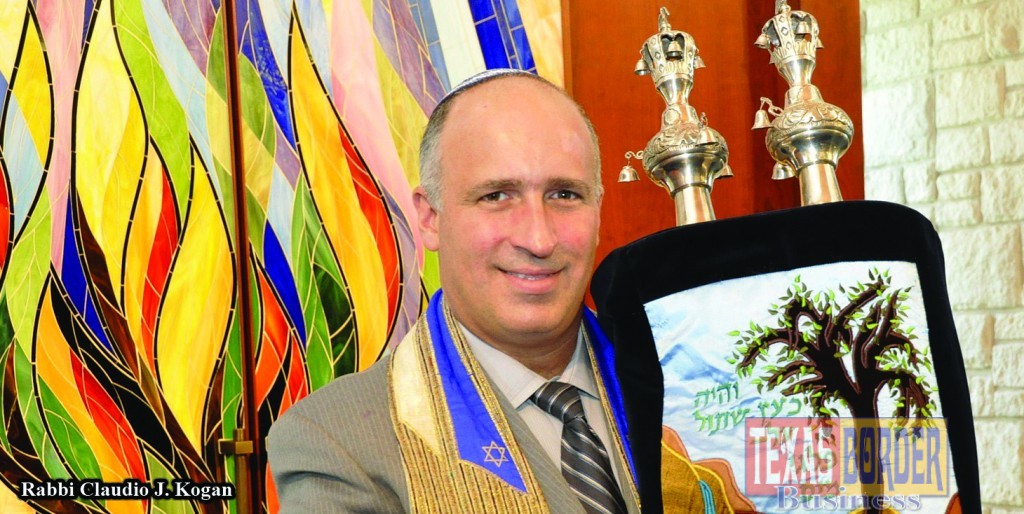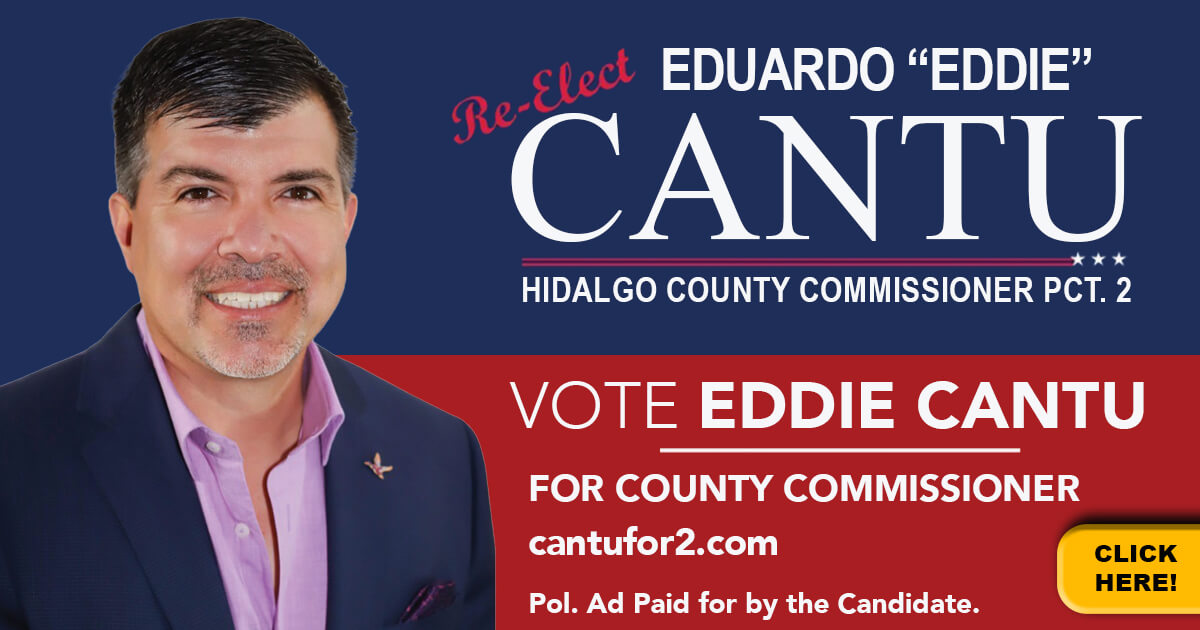
As originally published by Texas Border Business newsprint Edition
By Roberto Hugo Gonzalez
Meeting with Rabbi Kogan is an inspirational opportunity. Listening to him share his goals make you enthusiastic, admire the clarity of his vision and respect his faith.
Just recently Texas Border Business had the opportunity to speak with Rabbi Claudio J. Kogan, the new Rabbi for Temple Emanuel in McAllen, Texas and he is one who seeks to combine and to balance his personal humility with his strong professional will. “Which is essential to achieving both my own sense of fulfillment and the dreams and aspirations of our People in guiding them towards God, Torah and Israel,” he stated.
Q: How do you plan to make Judaism relevant and important to the Jewish youth in the Rio Grande Valley?
A: “As a rabbi I have learned that I am a translator of the past to the present for a meaningful Jewish message. That is why in every service there is music and above all an interactive connection with everyone and that is one of the ways to keep Judaism alive. Also to be able to translate the message of the Jewish tradition to make their lives more meaningful.”
Q: When you say translate, are you talking about translating Judaism to English or translating what the word of God is saying to a level of comprehension?
A: “Translation in a metaphorically meaningful way and not the linguistically.” He went on to say, “Our tradition is based on understanding, interpretation and making teachings meaningful to enrich our lives today.”
Q: What is the future of Judaism in small southern communities?
A: “As a Rabbi I believe in the value that we call ‘Bikaun olan’ which means repair the world. We believe that in any space and any place there is room to repair the world and making it a better place to live, we have to do it and that is the role of Judaism .”
Q: Do you see the Hispanic Jews in the Rio Grande Valley as having special needs?
A: “The needs are huge. In urban communities you can go to different Jewish institutions and get help for your spiritual, intellectual or social needs. Here in McAllen there is one congregation and my challenge is that every single member Jewish and non-Jewish appreciate the value of Judaism.”
Q: Is there any special plan to reach this group?
A: “There will be classes for the Jewish community and eventually I will have classes for the Hispanic Jewish community.”
Q: Would these classes or orientation be available to people who would want to come and learn about Judaism?
A: “Yes, most likely I plan to have a Sunday morning class,” he said.
Q: Holocaust education seminars out of San Antonio have been held in Harlingen High School, do you plan to bring this program to the City of McAllen?
A: “Yes, we will, my goal is to make the community aware about the Holocaust.”
At one point, Rabbi Kogan used to take groups of children to Washington D. C. to the Holocaust Museum as well to New York City.
He said that one time as he was preparing a class and used the Internet for research he was shocked when he found out that many sites deny the Holocaust. “Even today people do, including one of the Arab States preaches that the Holocaust never existed,” he said.
As far as the general responsibilities of the Synagogue to the general community, he says that Temple Emanuel has an important and crucial role in the City of McAllen. “Education and teaching is part of my success as a Rabbi as well as the success and growth of the Valley’s community.”
Rabbi Kogan holds four professional titles, he is a Rabbi, which means teacher. He is also a medical doctor graduated from the University of Buenos Aires, Argentina and holds a Masters in Education from Xavier University in Cincinnati, Ohio and a Masters Degree in Bioethics from the University of Pennsylvania, Medical School, in Philadelphia, Pennsylvania.
As a medical doctor, he intends to reach out to the medical community by teaching medical ethics. He pointed out that his teachings are not only for the Jewish community but also to all communities in the Valley.
He pointed out that from Moses and Herzl he learned to be an agent of change and a preserver of tradition. (Theodor Herzl, born Benjamin Ze’ev Herzl was the Jewish Austro-Hungarian journalist and the father of modern political Zionism and in effect the State of Israel.) One of his big dreams is to lead a congregational trip to Israel. “For me there is no Judaism without Israel. I am a dreamer and a doer; a student and a teacher; a team player and a visionary; a pastoral counselor and a rigorous leader. I have the capacity and desire to continually broaden and deepen my understanding of the world and my purpose in it,” he finalized. TBB
Written by Roberto Hugo Gonzalez the 2009 SBA Journalist of the Year Award Winner & The 2009 and 2012 Paul Harris Award recipient













